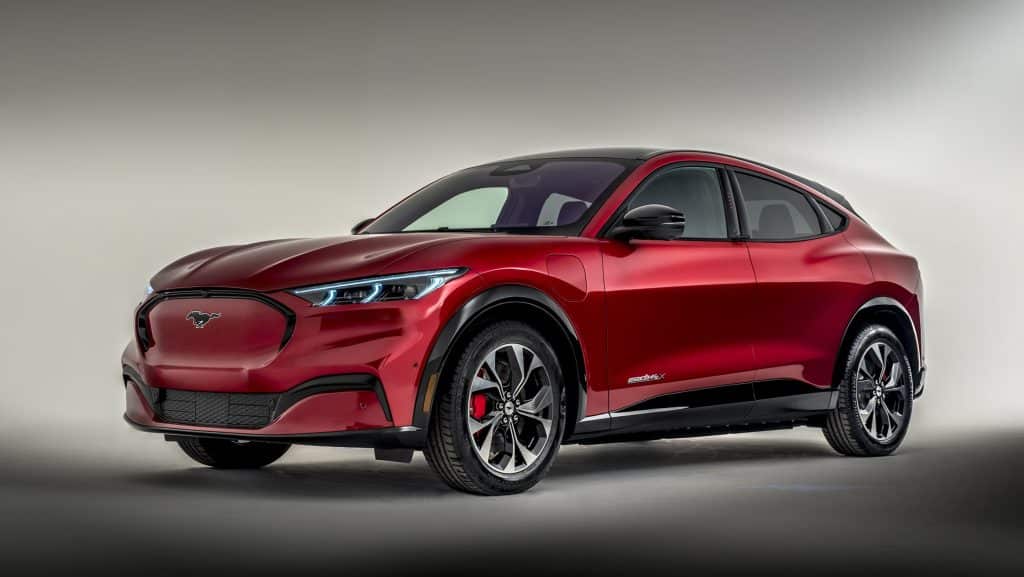Ford Motor Company, a name synonymous with automotive innovation, has shaped the landscape of the global automotive industry since its inception. Founded by Henry Ford, whose vision revolutionized manufacturing, Ford stands as a testament to American ingenuity and perseverance. This exploration delves into the rich tapestry of Ford’s history, its iconic models, and technological breakthroughs while also shedding light on its cultural impact and future aspirations. As a behemoth in the automotive world, Ford’s journey from a modest startup to a global powerhouse offers a compelling narrative filled with achievements, challenges, and an unwavering commitment to progress.
Contents
- 1 The Birth of Ford: A Historical Perspective
- 2 Iconic Models: From Model T to Mustang
- 3 Technological Innovations and Advancements
- 4 Ford in Popular Culture
- 5 Global Reach: Ford Around the World
- 6 Environmental Initiatives and Sustainability Efforts
- 7 Challenges and Controversies
- 8 Embrace the Legacy, Drive the Future
The Birth of Ford: A Historical Perspective

In 1903, with a vision to democratize the automobile, Henry Ford founded the Ford Motor Company, marking the beginning of an automotive revolution. The company’s first success, the Model A, set the stage for Ford’s reputation as an innovator. However, it was the introduction of the Model T in 1908 that truly changed the course of automotive history, making car ownership accessible to the masses. This vehicle’s success was propelled by Ford’s pioneering use of the assembly line, a concept that significantly reduced manufacturing costs and time. The assembly line not only revolutionized automobile production but also became a cornerstone in modern manufacturing processes.
Ford’s assembly line innovation did more than streamline production; it transformed the American workforce and economy. By introducing higher wages and shorter working hours, Ford attracted a skilled workforce, which in turn increased productivity. This approach not only improved the standard of living for many Americans but also laid the foundation for the concept of the middle class. Ford’s impact extended beyond the factory floor, influencing social structures and economic models worldwide. The company’s early years were not just about manufacturing cars; they were about creating a new social and economic landscape.
Iconic Models: From Model T to Mustang

The Ford Model T, colloquially known as the ‘Tin Lizzie,’ became more than just a car; it became a symbol of American innovation and mobility. Produced from 1908 to 1927, the Model T was the first automobile mass-produced on moving assembly lines with completely interchangeable parts, a testament to Ford’s vision of affordability and reliability. This vehicle bridged the gap between an exclusive luxury and a household necessity, forever altering how people perceived and used automobiles. The Model T’s affordability and simplicity revolutionized travel, opening the door for middle-class Americans to explore new horizons.
Transitioning from the utilitarian Model T, Ford introduced the Mustang in 1964, capturing the spirit of freedom and adventure. The Mustang, with its sleek design and powerful engine, quickly became an icon of American muscle cars. It appealed to a younger demographic, symbolizing power, speed, and style. This model’s introduction not only solidified Ford’s reputation for innovation but also helped redefine the American automotive industry in the post-war era. The Mustang’s enduring popularity, spanning over several decades, illustrates Ford’s ability to innovate while capturing the imagination of successive generations.
Technological Innovations and Advancements

Ford’s commitment to innovation is not confined to the early 20th century; it extends into modern times with significant advancements in automotive technology. In recent years, Ford has been at the forefront of incorporating cutting-edge technologies into its vehicles, such as advanced driver-assistance systems (ADAS) and connected car technology. These developments enhance driver safety and convenience, showcasing Ford’s dedication to improving the driving experience. Additionally, Ford’s integration of electric vehicle technology marks a significant shift in its strategy, aligning with global trends toward sustainable transportation.
In the realm of electric vehicles (EVs), Ford has made significant strides, committing to an electrified future with models like the Mustang Mach-E and the all-electric F-150 Lightning. These vehicles represent Ford’s foray into the rapidly evolving EV market, blending traditional Ford values with modern environmental consciousness. Moreover, Ford’s investment in autonomous vehicle technology signals its anticipation of future transportation trends. These advancements not only reflect Ford’s adaptability in a changing automotive landscape but also its commitment to shaping the future of mobility.
Ford in Popular Culture

Ford’s influence extends beyond the realm of automotive manufacturing into the fabric of popular culture. The brand has been a staple in numerous films, television shows, and advertisements, often symbolizing quintessential American values and lifestyles. From classic films like “Bullitt” featuring the iconic Mustang to the emblematic Ford trucks in modern action movies, Ford vehicles have become synonymous with cinematic excitement and adventure. This integration into media has bolstered Ford’s brand identity and made its models cultural icons. The company’s consistent presence in popular culture reflects its deep-rooted connection to the societal zeitgeist and its ability to resonate with audiences across generations.
Ford’s role in music, literature, and even video games further cements its status as a cultural icon. Songs like “Mustang Sally” and references in novels showcase Ford’s impact on various artistic mediums. In the digital realm, Ford vehicles frequently appear in popular video games, allowing players to experience the thrill of driving a Ford in a virtual world. These cultural references and inclusions highlight Ford’s versatility in adapting to different entertainment mediums and its appeal to a diverse audience. Ford’s influence in popular culture is not just about product placement; it is a testament to the brand’s enduring legacy and its ability to capture the imagination of people worldwide.
Global Reach: Ford Around the World

Ford’s global presence is a testament to its universal appeal and adaptability to diverse markets. From North America to Europe, Asia, and beyond, Ford has established a significant footprint, adapting its models to meet regional preferences and regulations. This international expansion has involved not only exporting vehicles but also setting up manufacturing plants and establishing strong dealer networks. Ford’s ability to understand and cater to the unique needs of different cultures has been crucial in its global success. The brand’s international strategy reflects its commitment to being a global player, not just in terms of sales but also in shaping the automotive landscape worldwide.
In emerging markets, Ford has played a pivotal role in defining the automotive sector. In countries like China and India, Ford has tailored its offerings to suit the specific needs and preferences of these markets, such as compact and fuel-efficient models. The company’s investment in these regions goes beyond mere sales; it involves community engagement, environmental considerations, and contributing to the local economy. Ford’s approach in these markets demonstrates its ability to not only navigate but also thrive in diverse and challenging environments. The company’s global strategy underscores its vision to be an inclusive brand, accessible and relevant to customers around the world.
Environmental Initiatives and Sustainability Efforts

Ford’s dedication to sustainability and environmental responsibility is evident in its various green initiatives and eco-friendly models. Recognizing the growing concern over environmental issues, Ford has committed to reducing its carbon footprint through innovations in manufacturing and product design. The company has invested in renewable energy sources for its plants and has implemented measures to minimize waste and energy consumption. These efforts reflect Ford’s recognition of its environmental responsibilities and its role in promoting sustainable practices within the automotive industry. Additionally, Ford’s development of hybrid and electric vehicles showcases its commitment to reducing emissions and leading the transition to a more sustainable future.
The company’s future plans include a significant shift towards electrification, with commitments to fully electrify some of its most popular models. This move aligns with global environmental goals and positions Ford as a leader in the transition to cleaner automotive technologies. Ford’s investment in research for better battery technology and more efficient electric motors demonstrates its dedication to making electric vehicles more accessible and practical for everyday use. Moreover, Ford’s initiatives in recycling and using sustainable materials in vehicle production are indicative of a holistic approach to environmental stewardship. These endeavors represent Ford’s vision of a future where the automotive industry plays a critical role in environmental conservation.
Challenges and Controversies

Throughout its history, Ford has faced its share of challenges and controversies, reflecting the complexities of operating in a dynamic and competitive industry. Economic downturns, shifts in consumer preferences, and increasing global competition have tested Ford’s resilience and adaptability. The company has navigated these challenges by restructuring its operations, focusing on core models, and investing in new technologies. These strategic decisions, while difficult, have been essential for Ford to remain competitive and relevant in a rapidly evolving market. Additionally, Ford’s ability to rebound from these challenges demonstrates the strength of its brand and the loyalty of its customer base.
Ford has also encountered controversies, ranging from safety concerns to labor disputes. These incidents have challenged the company’s reputation and prompted it to reevaluate its practices and policies. Ford’s response to these controversies, including implementing stricter safety standards and engaging in more transparent communication, has been crucial in regaining public trust. The company’s proactive approach to addressing these issues reflects its commitment to continuous improvement and ethical business practices. These experiences have taught Ford valuable lessons in corporate responsibility and crisis management, shaping it into a more conscientious and resilient company.
Embrace the Legacy, Drive the Future
Ford’s journey, marked by innovation, cultural impact, and global presence, exemplifies more than just automotive excellence; it represents a legacy of resilience and forward-thinking. As Ford continues to navigate the complexities of the automotive industry, its commitment to progress and sustainability shines through. By embracing its rich history and driving towards a future of technological advancement and environmental responsibility, Ford invites you to be part of this exciting journey. Join the movement and be a part of shaping the future of mobility with Ford.


